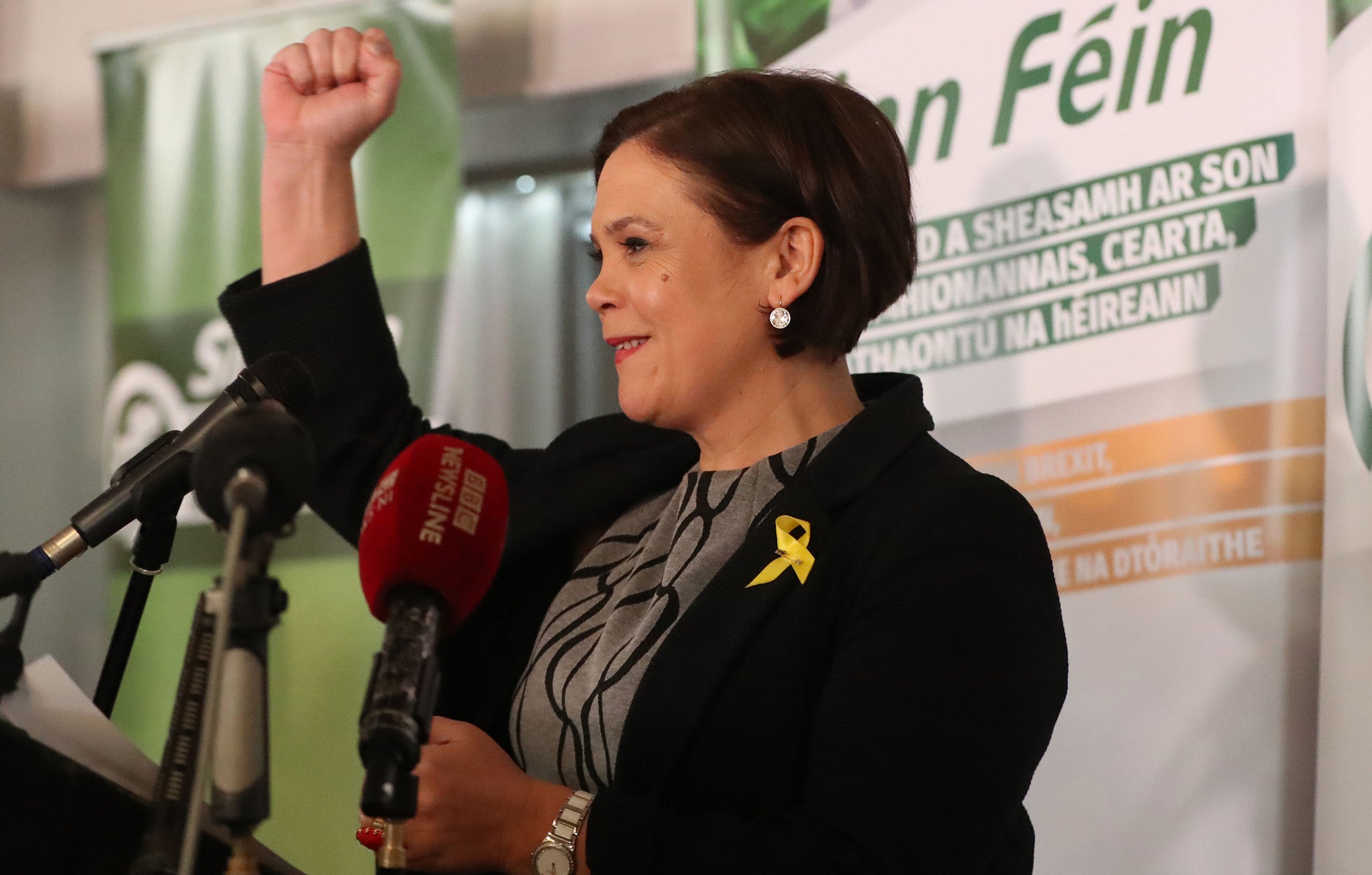Brexit cannot be dealt with until Sinn Fein and the DUP speak to one another
It is in Sinn Fein leader Mary Lou McDonald’s interests and those of the people she represents to ensure that Brexit is shaped so that it is as near compatible as it can be to the Good Friday agreement

Not for the first time in Northern Ireland, unionist stubbornness has brought its own rewards, of sorts. The obvious and implacable determination of the DUP leader, Arlene Foster, to hang on to her job as First Minister, the lack of any pressure within her own party for her to quit, and, after the British general election in June, her position of leverage at Westminster left Sinn Fein with a choice.
Her refusal to stand down was the proximate reason for Sinn Fein pulling out of government last year, because of her personal role in a fiasco over tax subsidies for “green” energy: Yet she is still there. Sinn Fein had a choice. They could either carry on until the end of time or the demise of the doughty DUP leader with their demands for her to go: or, as we sense from the inter-party talks in Stormont – also attended by the prime ministers of Ireland and Britain – they could budge.
The demand for Ms Foster to go is being quietly dropped. A compromise on the other major Sinn Fein demand – status and recognition for the Irish language – is also within reach, one where the Unionist community that has no wish to learn Irish will not be discriminated against in employment, for example. Equal marriage will be more difficult to find common ground on, but it seems unlikely that it will subsume every other consideration.
There are, of course, a few other issues that have concentrated the minds of the two parties. The extra £1bn secured by the DUP for funding in Northern Ireland last year in return for propping up Theresa May’s government will need to be spent, and it is better that it be disbursed by accountable politicians than the civil servants who have been running the province since power-sharing collapsed more than a year ago. The pork barrel beckons.
The second and still the more pressing issue is, of course, Brexit and the border. In a notably conciliatory address last month, Ms Foster, who campaigned for Leave, stressed how keen she and her party were to maintain the current frictionless “soft” border with Ireland. It was couched in the sort of terms that nationalists and Republicans, and the government in Dublin, could respond to and, indeed, agree with. Sinn Fein and the DUP, in other words, have a shared interest now in making the best of Brexit, however much it may irk some.
True, some of the Republican ultras might perversely wish for a hard border and a return to checkpoints as a way of provoking renewed resentments and violence, but the motives of the new Sinn Fein leader, Mary Lou McDonald, seem sincere, thus far. In fact, she has traded more insults with the Irish Prime Minister than the Brits or the DUP, which is probably some kind of progress. Leo Varadkar, a man of undoubted charm, she called “smarmy” after it was reported that he thought her “cranky”, an uncharitable view of her passionate patriotism.
More to the point, Ms McDonald believes that Brexit and the Good Friday Agreement are mutually incompatible, and she is right about that, but it is also in her interests and those of the people she represents to ensure that Brexit is shaped so that it is as near compatible as it can be. That, she well knows, is best done from an official position of power and influence at Stormont. If nothing else, in a renewed executive her party will be able to take another step forward in ensuring the human rights of her supporters in the North of Ireland are protected and enhanced. That is worth going back for.
And so, to mix the old cliché, the elephant in the Stormont negotiating room has woken up and smelt the coffee. Sinn Fein’s vice president Michelle O’Neill, from the North, has predicted that the Stormont talks would conclude this week, and she has reason to know. It is a rare piece of hopeful political news.
In a little over a year, the kind of Brexit deal achieved will determine whether fully staffed customs posts spring up all along the 300-mile land border between Northern Ireland and the UK on one side, and Ireland and the EU on the other – or whether it will be business as usual, with no physical indicators of the partition to rankle with Republicans or interfere with free trade. If hard Brexit does happen, and the economic damage to Northern Ireland is as severe as envisaged in the British Government’s own studies, it is not impossible that a segment of the unionist community might at least contemplate wither some sort of autonomy within an Irish federation – unification – is preferable to getting relatively poorer under the British crown, though Ireland itself has more to lose than some British regions from a hard Brexit.
These are all challenging issues, as difficult as any that the people of Northern Ireland have had to face up to since the end of the Troubles. They cannot get close to solving them if Sinn Fein and the DUP won’t even speak to one another.

Join our commenting forum
Join thought-provoking conversations, follow other Independent readers and see their replies